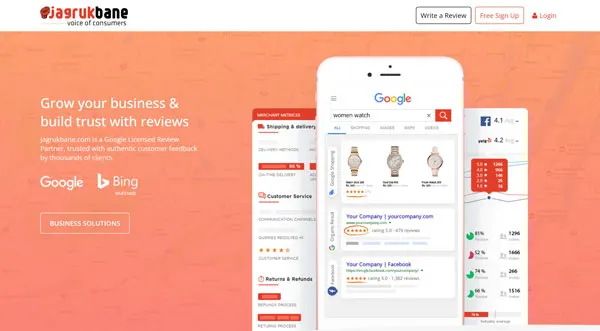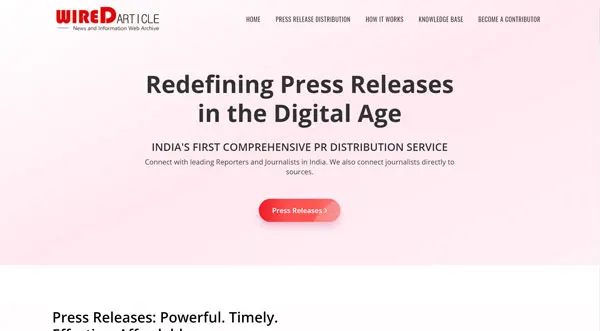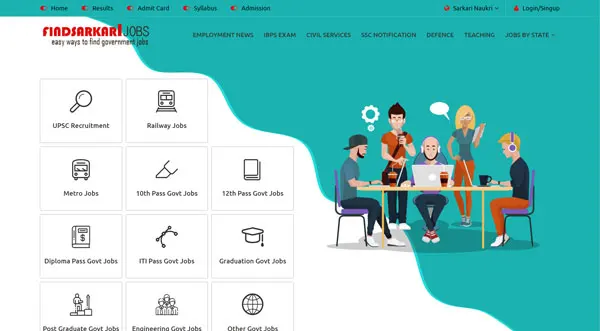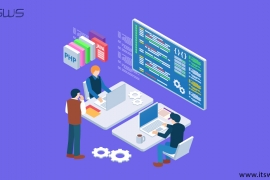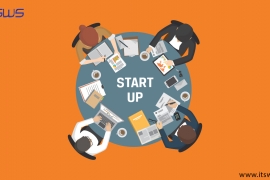Electronics ERP Systems Cost Control and Expense Management
Electronics ERP software facilitates better cost control by tracking expenses, managing budgets, and analyzing cost drivers. It helps identify cost-saving opportunities, eliminate redundancies, and improve financial management practices, leading to increased profitability.
Electronics Industry ERP Software Improved Production Planning and Control
Electronics Industry ERP systems provide tools for effective production planning, scheduling, and monitoring. By optimizing production processes, minimizing downtime, and maximizing resource utilization, manufacturers can achieve higher productivity and lower production costs.
Electrical and Electronics Industry ERP Software Maximize Your Profitability
Implementing the right ERP software in the electrical and electronics industry can indeed help maximize profitability by streamlining operations, optimizing resources, and enhancing decision-making. ITSWS Technologies offers an industry-specific ERP solution for electronics manufacturing. It provides features for managing product lifecycle, demand planning, manufacturing execution, and supply chain optimization. It's important to note that while ERP software can significantly contribute to profitability, its successful implementation requires careful planning, customization, and user adoption. Each organization's specific needs and processes should be considered when selecting and implementing an ERP solution to maximize the potential benefits and profitability.
- Research and Development (R&D): This stage involves the design and development of new electronic products or the improvement of existing ones. R&D focuses on innovation, product feasibility, and prototyping.
- Component and Material Suppliers: Electronics manufacturers rely on a network of suppliers to provide the necessary components and materials for their products. This includes electronic components such as microprocessors, memory chips, circuit boards, displays, connectors, and various other electronic parts.
- Manufacturing: The manufacturing stage involves assembling the electronic components into finished products. This can take place in-house or through contract manufacturing partners. Manufacturing processes include surface mount technology (SMT) assembly, through-hole assembly, testing, quality control, and packaging.
- Distribution and Logistics: Once the electronic products are manufactured, they need to be distributed to retailers, wholesalers, or directly to customers. This stage involves managing logistics, warehousing, inventory management, and transportation to ensure timely delivery.
- Retailers and Sales Channels: Electronic products are sold through various sales channels, including online stores, brick-and-mortar retail outlets, and distribution networks. Retailers play a crucial role in marketing, sales, and after-sales support for consumers.
- After-sales Service: The electronics industry often provides after-sales service and support to customers. This includes warranty services, repairs, software updates, technical support, and customer service.
- End-users and Consumers: The final stage of the value chain involves the end-users and consumers who purchase and utilize the electronic products for personal or professional use.
- Bill of Materials (BOM): A BOM is a comprehensive list of all the components, sub-assemblies, and materials required to manufacture an electronic product. ERP software helps manage and track BOMs, including revisions, component availability, and cost.
- Engineering Change Order (ECO): An ECO is a formal process used to document and manage changes to product designs, specifications, or manufacturing processes. ERP software can help track and manage ECOs, ensuring proper documentation, approval workflows, and implementation.
- Product Lifecycle Management (PLM): PLM refers to the management of a product throughout its entire lifecycle, from concept and design to production, service, and eventual retirement. ERP systems often integrate with PLM solutions to streamline data exchange and collaboration between engineering, manufacturing, and other departments.
- Supply Chain Management (SCM): SCM involves managing the flow of materials, components, and finished products from suppliers to manufacturers, distributors, and ultimately, customers. ERP software provides SCM capabilities, including demand planning, procurement, inventory management, order tracking, and supplier relationship management.
- Quality Management System (QMS): QMS refers to the processes and procedures implemented to ensure product quality and compliance with standards and regulations. ERP software may include QMS modules for managing quality inspections, non-conformance tracking, corrective actions, and document control.
- Serial and Lot Traceability: In the electronics industry, traceability is crucial for tracking components, materials, and finished products throughout the supply chain. ERP software can provide serial and lot traceability features, allowing organizations to trace and identify specific units or batches throughout their lifecycle.
- Shop Floor Control: Shop floor control functionalities enable real-time monitoring and control of manufacturing operations on the shop floor. This includes managing work orders, scheduling production, tracking labor and machine utilization, and capturing production data for analysis and reporting.
- Demand Forecasting and Planning: ERP software helps electronics manufacturers forecast demand based on historical data, market trends, and customer orders. It facilitates demand planning, production scheduling, and resource allocation to optimize inventory levels and meet customer requirements.
- Financial Management: ERP systems include financial modules for managing accounting, budgeting, cost control, and financial reporting. These features are essential for electronics companies to track costs, manage budgets, and generate financial statements.
Cloud-based Electronics ERP Systems Revolutionize the Electronics Industry
Indeed, cloud-based ERP systems have revolutionized the electronics industry by offering numerous benefits and transforming the way businesses operate. Overall, cloud-based ERP systems have revolutionized the electronics industry by providing accessibility, scalability, cost savings, flexibility, real-time insights, integration capabilities, enhanced security, and automatic updates. By leveraging these benefits, electronics businesses can streamline their operations, improve decision-making, and drive innovation and growth in a highly competitive industry.
Electronics Manufacturing ERP Solution Streamlined Order Management
ITSWS Technologies is a top rated Electronics ERP Software company in Noida. The Cloud-based electronics ERP systems have made a significant impact on order processing, tracking, and fulfillment, reducing manual errors and improving order accuracy. It enables businesses to respond quickly to customer demands, optimize order fulfillment cycles, and enhance customer satisfaction.



Why Choose ITSWS Technologies for ERP Software For Electronics Industry
Here are some reasons why you can put your complete faith in ITSWS Technologies when it comes to your ERP Software For Electronics Industry needs.
550+
Projects Deliver
50+
Skilled Professionals
350+
Satisfied Clients Worldwide
10+
Years of Experiences
96%
Repeat Business
32+
Customized product
ITSWS charter is to make IT think, talk and perform like a business.

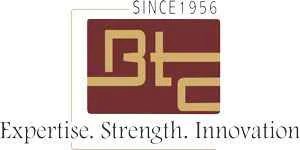



























Clients Testimonials
Excellent work was done by the ITSWS Team
Excellent work was done by the ITSWS team. The team's approach was professional and the delivery was on time while getting the issues fixed within the budget. Thank you, guys!

Dr. Akhilesh Yadav, Senior Knee & Hip Specialist and Replacement Surgeon
The Centre for Knee & Hip CareThe right decisions
The ITSWS Technologies team goes above and beyond to ensure that our needs are met my requirement, and they are always willing to spend the extra time to make sure that we understand everything and that we are making the right decisions.

Omkar Arya, Managing Director
Fastep Multitrade PVT. LTD.Trustworthy and affordable team
Despite several complexities during the initial phase of the project, The team at ITSWS was always very accommodating to our requests and active in their replies. They were flexible and took initiative to suggest better designs for us and felt part of our team. Our website is finally something we can be proud of, thanks to ITSWS!

Roy, Founder & Managing Director
Roys Fashion Limited, BangkokAffordable and Reliable team
Digital agencies need to hand off the implementation of services to remain competitive. ITSWS has a reliable implementation team you can trust and afford.

Avinash Kumar, Director
CMYCK Ltd, LondonOutstanding professionals
Their SEO experts have helped our business generate a high amount of organic traffic & ROI from our primary focus keywords along with the consistent rankings on page one of Google. I surely recommend these outstanding professionals.

Ursula Teubert, Advisory Board Member
Endurance Management Consultancy,DubaiPixel perfect website development
I have been involved in a lot of different websites development projects over the years, but I have never had an experience quite like this. The team was amazing - both in terms of their ability/skills and their communication. A time, on spec website development project, is almost unheard of - but ITSWS pulled it off! I couldn't be happier and will definitely use them again in the future!

Vikas Gupta, Partner
Aswaar Consulting DMCC, DubaiUnwavering commitment to timelines
Itsws Technologies is the best web development organization, developing my website very professional and attractive. The development is really very professional and dedicated, they never left any point during developing the website. Thanks to ITSWS team, our site make a good position in the google search, without the professional and dedicated team it was not possible. They are the great guys to develop the best website.

Mr. Shyam Chandra Pandey, CEO & Co-Founder
Gangotrishakti Food Care Pvt. Ltd.Android Mobile Apps
To provide best software solution with on-demand service, we have taken services from ITSWS Technologies about our company online mobile application. The organization is the best with their commitment and excellent team. They are always willing to go the extra mile, never compromise on quality work, and patiently guide and educate every user. They are providing support properly any time. We are really happy with them
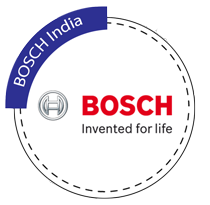
Mr. Shan Dhingra, Head of Business Development
Bosch IndiaA design that is personalized, warm and easy to browse
Our online business portal designed and developed by ITSWS Technologies, they provide me best look site with responsive support. We at, Agrawal Packers Movers avail the website various service from ITSWS, with excellent team response and support. They are excellent and always willing to go the extra mile support, never compromise on quality, and patiently guide and educate every user. Great support by the organization...

Mr. Ram Kumar, Digital Strategist
Agarwal Packers & Movers LtdExtremely Professional Work
We are very happy with the design and layout of our website. ITSWS worked with us for over 2 months on our website...

Mr. Rishi Pal Singh Tomar, MCA Director
IPEM Group of InstitutionsLatest ERP Software For Electronics Industry Articles
ERP Software For Electronics Industry, Insights and up-to-date knowledge from us, to you.
Our comprehensive range of web development services is designed to meet the unique needs of each client, ensuring a strong and impactful online presence. ITSWS Technologies is dedicated to helping businesses in Singapore establish a strong and impactful online presence through our comprehensive web development services.
Implementing a CRM system offers numerous benefits for businesses of all sizes and industries. Improving customer relationships and enhancing efficiency to drive sales and marketing effectiveness, a CRM system is a valuable investment that can significantly impact business success. With the power of CRM, you can streamline operations, gain deeper insights into your customers, and build stronger, more profitable relationships.
A well-developed website serves as the cornerstone of your online presence, helping you attract and engage customers, showcase your products and services, and drive business growth. ITSWS Technologies offers comprehensive web development solutions tailored to meet the unique needs of your business.
Your business goal will promote your business and create more traffic with help of social sites. The business owners are a focus on creating best board images, event highlight, contents and other information on the site.
The business website should be professional, creative, proper design and user- friendly will help to create a community according to the business goal.
Android is an open-source Linux-based operating system planned mainly for smart phones. It is maintain as an open source scheme by Google. This open spring code and licensing allow the developers and machine manufacturers to adjust the software according to their needs.
We'd love to talk with you
Congratulations! You have landed safely on the land of ITSWS Technologies.
Trust, it's a 'beginning of Long Term Relationship with ITSWS Technologies '. Let's work, enjoy and succeed together 
if you are looking for:

Web Development Solutions within agreed timelines.

Result Driven Brand Building Digitally

Customized e-commerce solutions. The exceptional

Drive Right Leads from the Right Audience
100% Guaranteed SEO Results

60 minutes support post project delivery.








